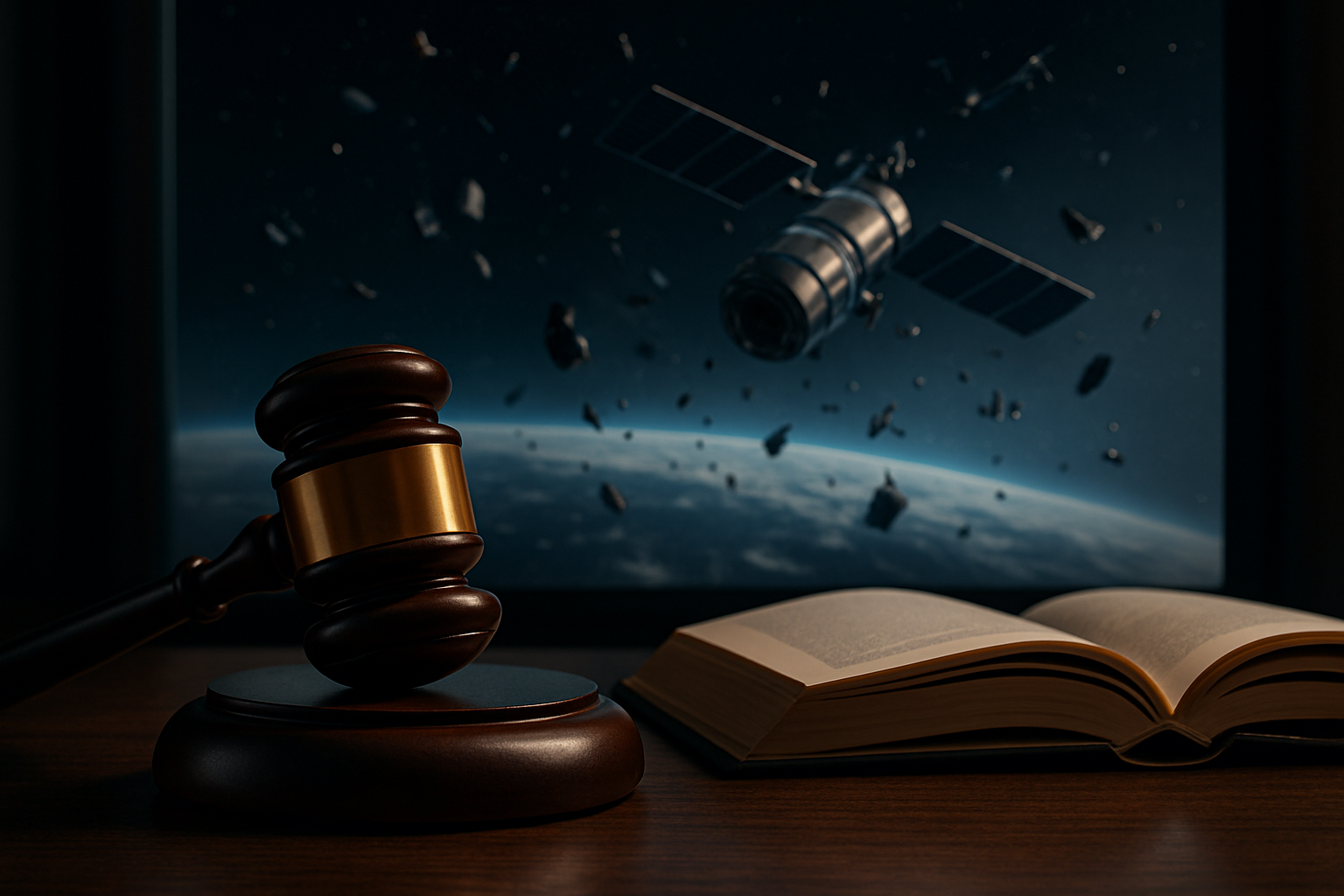Legal Implications of Space Debris: A New Frontier in Law
Introduction: As humanity's presence in space expands, a new legal frontier emerges: space debris. This article explores the complex legal challenges posed by the increasing amount of man-made objects orbiting Earth, examining current international laws, potential future regulations, and the implications for space exploration and satellite operations.

Current International Legal Framework
The primary international agreement governing space activities is the 1967 Outer Space Treaty. While this treaty establishes fundamental principles for the peaceful use of outer space, it does not explicitly address the issue of space debris. The 1972 Liability Convention and the 1975 Registration Convention provide some guidance on responsibility for damage caused by space objects, but they too fall short in addressing the specific challenges posed by space debris.
Gaps in Existing Space Law
The current legal framework has several limitations when it comes to space debris. First, there is no clear definition of what constitutes space debris in international law. Second, the existing treaties do not provide specific guidelines for debris mitigation or removal. Third, the question of liability for damage caused by unidentified debris remains unresolved. These gaps in the legal framework have led to increasing calls for new, more comprehensive regulations.
Efforts to Develop Space Debris Mitigation Guidelines
In response to the growing concern over space debris, various international organizations have developed non-binding guidelines. The United Nations Committee on the Peaceful Uses of Outer Space (COPUOS) adopted a set of Space Debris Mitigation Guidelines in 2007. Similarly, the Inter-Agency Space Debris Coordination Committee (IADC), comprising major space agencies, has published its own set of guidelines. These documents recommend practices such as limiting debris released during normal operations, minimizing the potential for on-orbit break-ups, and removing spacecraft from useful orbits at the end of their operational life.
Emerging Legal and Policy Initiatives
Recent years have seen increased efforts to address the space debris problem through legal and policy initiatives. The European Union proposed a Code of Conduct for Outer Space Activities in 2008, which includes provisions on space debris mitigation. The United States has updated its Orbital Debris Mitigation Standard Practices and requires satellite operators to submit debris mitigation plans as part of their licensing process. Some countries, like Japan and France, have incorporated space debris mitigation requirements into their national space laws.
Challenges in Enforcing Space Debris Regulations
Enforcing regulations on space debris presents unique challenges. The global nature of space activities requires international cooperation, but achieving consensus among nations with different space capabilities and interests is difficult. Moreover, the technical complexity of debris removal operations and the high costs associated with them create additional barriers to effective enforcement.
The Role of Private Actors in Space Debris Management
As commercial space activities expand, private companies are playing an increasingly important role in space debris management. Some firms are developing technologies for debris removal, while others are working on improving satellite designs to minimize debris creation. However, the involvement of private actors raises new legal questions about liability, ownership of debris, and the potential for weaponization of debris removal technologies.
Future Legal Developments
Looking ahead, several areas of space law related to debris management are likely to evolve. These include:
-
Development of a clear legal definition of space debris
-
Establishment of binding international rules for debris mitigation and removal
-
Creation of a system for space traffic management
-
Clarification of liability issues for damage caused by debris
-
Regulation of commercial debris removal activities
Conclusion
The issue of space debris presents a complex and urgent challenge for the international legal community. As our reliance on space-based technologies grows, so does the need for a comprehensive legal framework to manage the risks posed by orbital debris. Addressing this challenge will require innovative legal solutions, international cooperation, and a balance between promoting space activities and ensuring the long-term sustainability of the space environment. The development of space debris law represents a critical frontier in the evolution of space governance and will play a crucial role in shaping the future of human activities beyond Earth.






